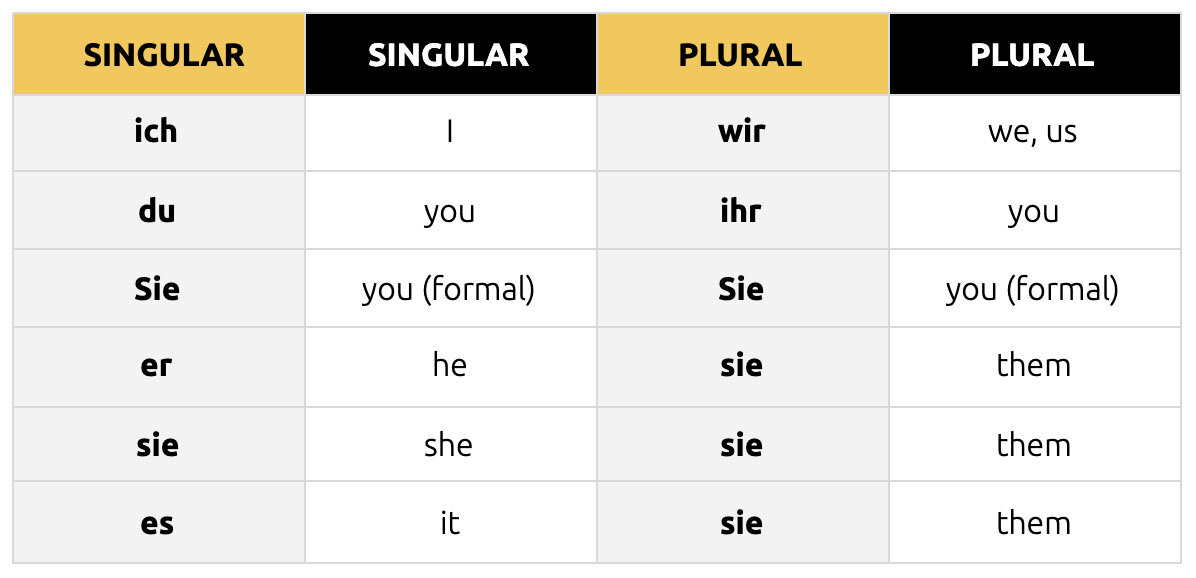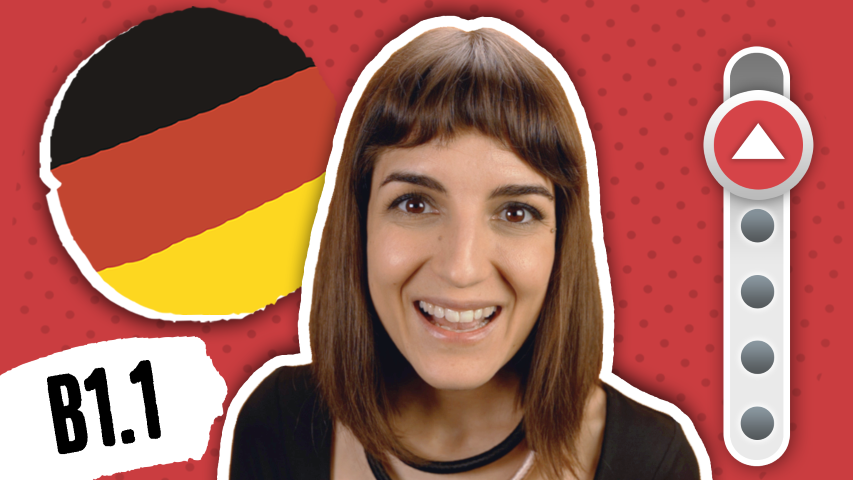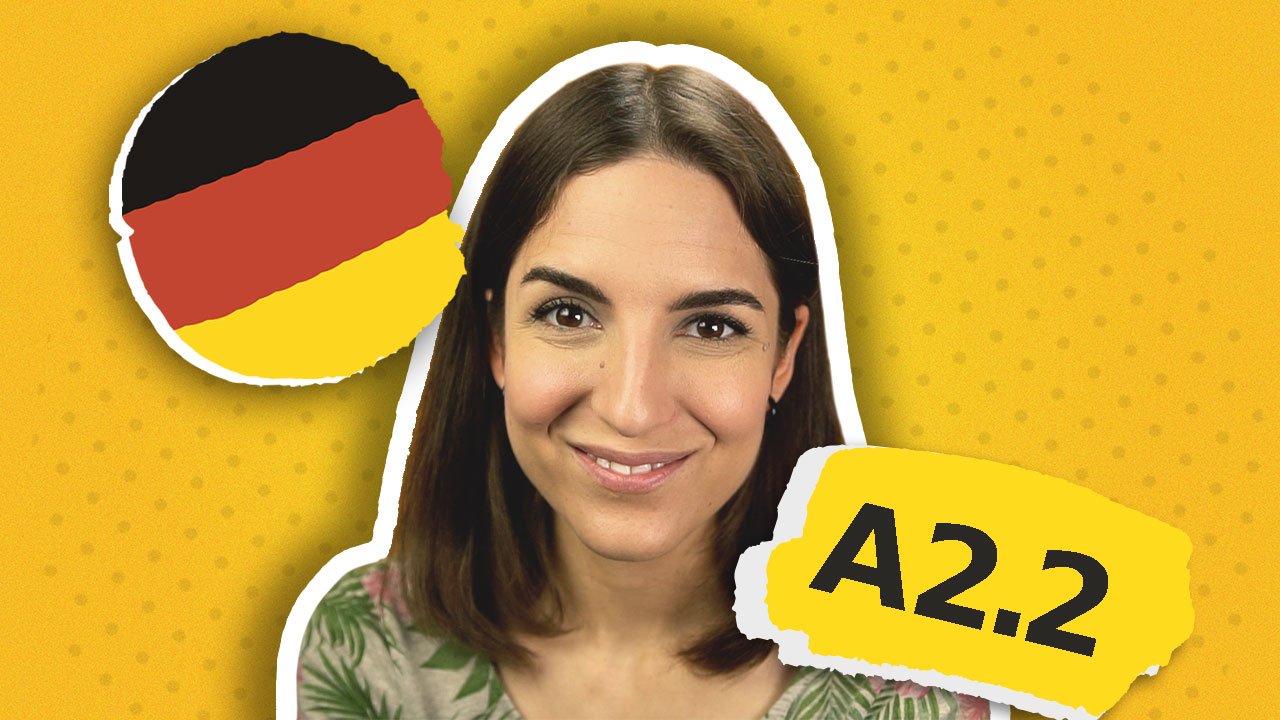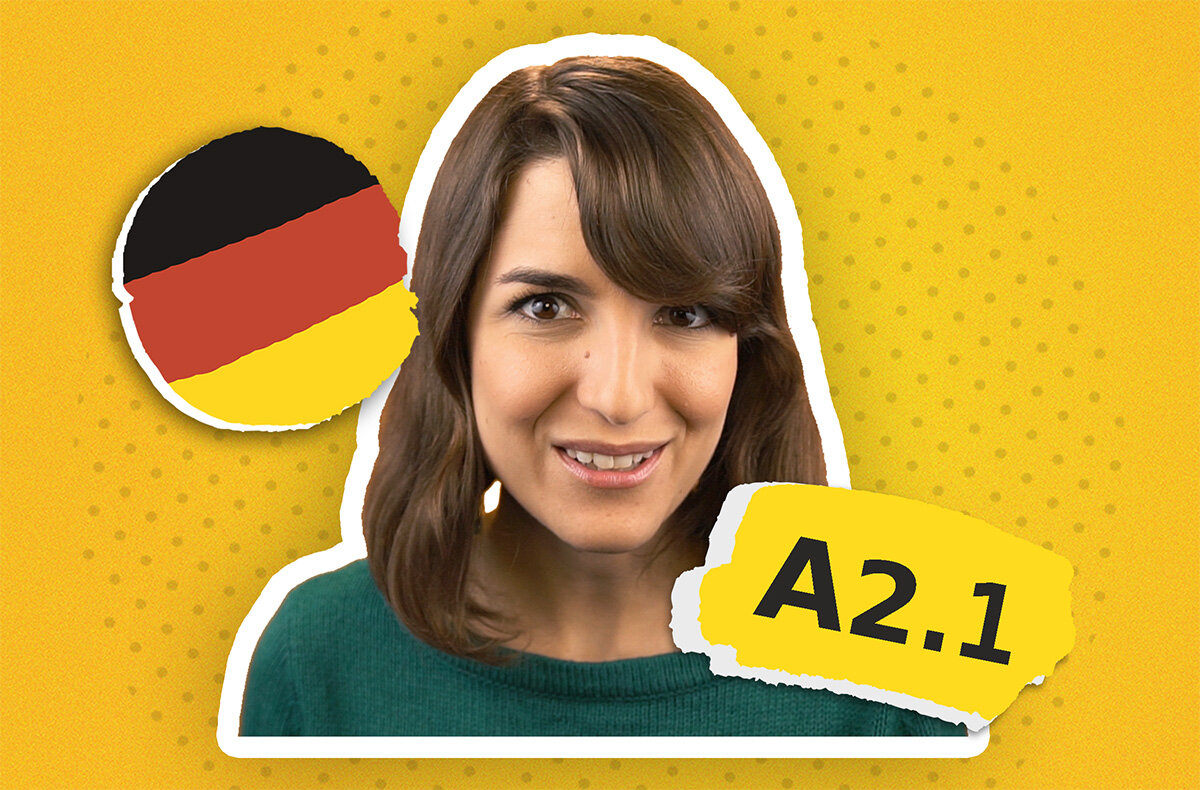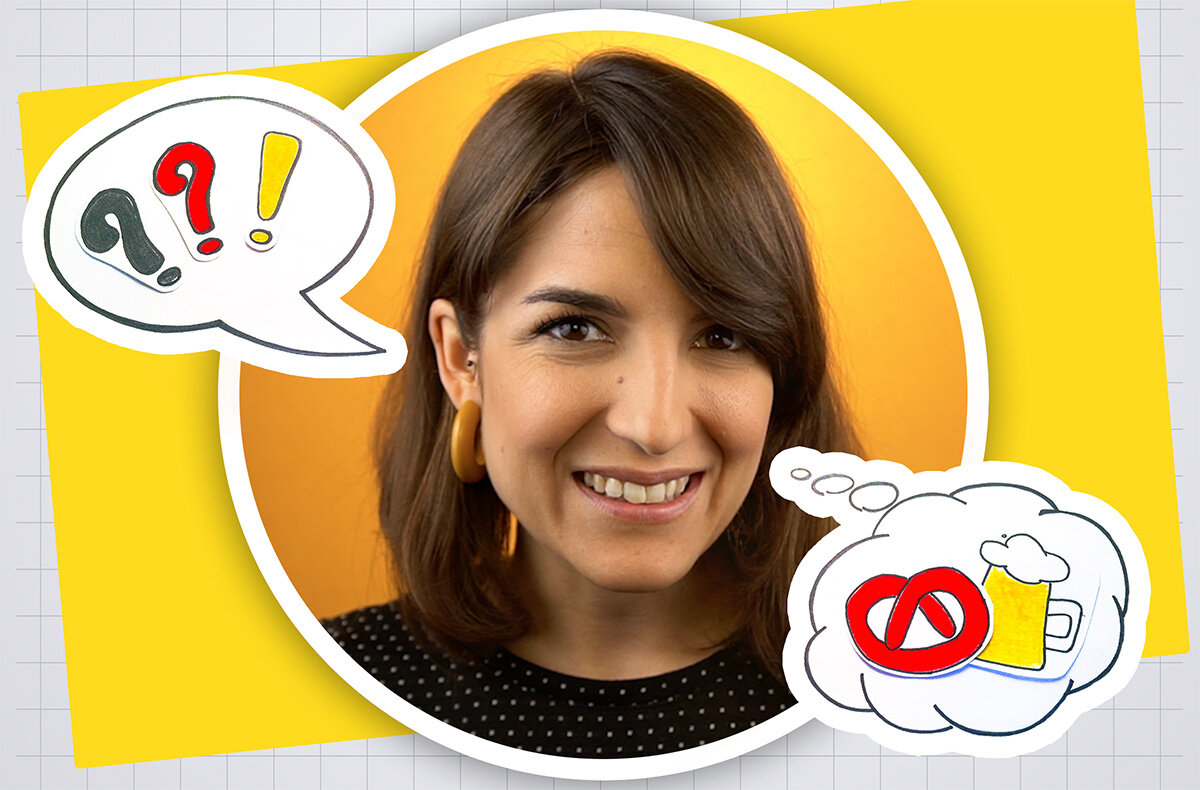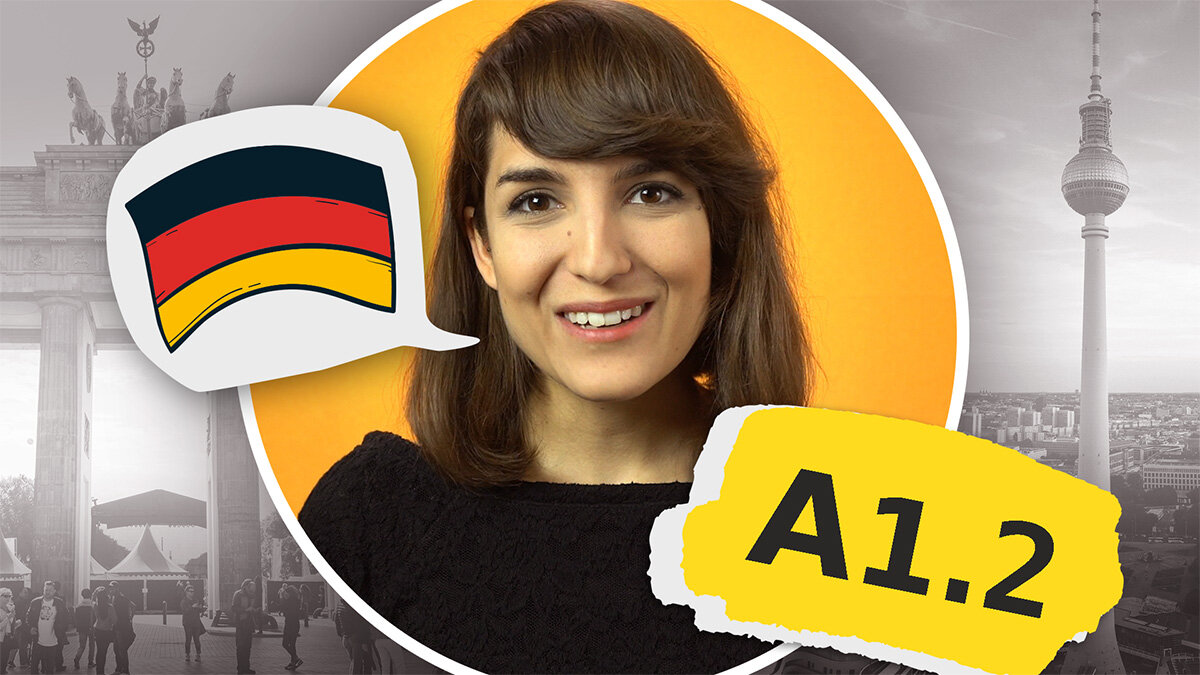German Personal Pronouns - Ich, du, wir…
Germany, 1875.
Julia is preparing for the birthday party of the richest aristocrat in town, where she is hoping to talk to Heinrich, a young officer. They have met two winters ago at the summerhouse of her aunt Hilda and have talked many times since then. She is however still unsure how to address him – have they grown close enough to address him with “du”? Or will she have to address him with “Sie”? It is, of course, expected to respectfully address others with “Sie”, after all, it is a sign of good manners! But Julia feels close to Heinrich, having spent many evenings talking to him about her deepest secrets, sweetest dreams and thoughts. Now she yearns to be his “du”, someone close to him, someone he considers dear to his heart….
Such a dilemma might seem to us like a thing of the past, but learning German, you will find out that even in the present day you can feel like Julia, as this difference between formal “you” (Sie) and the “you” used to address people close to you (du) is still present in German to this very day.
In the previous lessons, you’ve probably noticed these pronouns: ich (I), du (you), er (he), sie (she), Sie (you), wir (us), ihr (you) and sie (they). For a lot of people the difference between “sie, Sie, sie” and “du (you)/Sie (you)/ihr (you)” might be quite confusing, but hopefully, you’ll be able to tell them apart without any problems after this lesson.
And after you learn about the importance of “du/Sie”, you can read about what happened between Julia and Heinrich! 💪
German personal pronouns in the singular form
☞ I/ich
🇩🇪 - Ich heiße Charlotte.
🇬🇧 - My name is Charlotte.
🇩🇪 - Ich bin Lehrerin.
🇬🇧 - I am a teacher.
„Ich“ means „I“ in German. Unlike the English pronoun, we don’t capitalise this German personal pronoun we use to speak about ourselves.
☞ you/du
🇩🇪 - Bist du Benjamin?
🇬🇧 - Are you Benjamin?🇩🇪 - Du bist meine beste Freundin!
🇬🇧 - You are my best friend!
Now we get to the dilemma from Julia’s story. “Du” means “you”, but it is only meant to be used when addressing family members or people you’re close to. Now, similarly to the way it would be impolite to say “Tschüss!” to your boss, it would also be considered impolite to address them with “du”.
Using “du” implies a close relationship to someone and you shouldn’t use it to address people you’ve just met, you don’t know very well or you have a strictly professional relationship with. “Du” often comes with permission, meaning that someone has to allow you to say “du” to them. In the following short dialogue, you can see an example of such permission:
🇩🇪 - Guten Tag, Herr Schmidt! Wie finden sie das neue Museum?
🇬🇧 - Good morning, Mr. Schmidt! How do you find the new museum?🇩🇪 - Sagen Sie mir „du“, bitte! So alt bin ich nicht!
🇬🇧 - Please, address me with “du” (you)! I am not that old!🇩🇪 - Gut! Und du solltest dasselbe tun! Also, wie findest du das neue Museum?
🇬🇧 - OK! And you should do the same thing! So, how do you find the new museum?🇩🇪 - Das neue Museum ist sehr schön! Und wie findest du das neue Museum, Daniel?
🇬🇧 - The new Museum is very nice! And how do you like the new museum, Daniel?🇩🇪 - Das neue Museum ist zu groß!
🇬🇧 - The new museum is to big!
If you aren’t sure whether you’re close to someone or not, it is better to address them with “Sie” to ensure we are being polite! When using “Sie” we always also use the verb in its plural form.
Good to know!
Children and teenagers address each other with “du”. Adults also address children and teenagers with “du”. As you’ve noticed in the dialogue above, sometimes people point out that they feel younger when addressed with “du”.
☞ you/Sie
🇩🇪 - Sind Sie Frau Müller?
🇬🇧 - Are you Miss Müller?
🇩🇪 - Sie sind sehr nett, danke!
🇬🇧 - You’re very kind, thank you!
Now, although there isn’t a difference between formal and informal “you” in English, it is very important in German. It is a sign of politeness and respect to address people you don’t know very well and people you have a professional relationship with “Sie”. It is also very important to capitalize “Sie”, as it is also a sign of respect.
☞ he/er
🇩🇪 - Das ist Erich. Er ist sehr nett.
🇬🇧 - That ist Erich! He is very nice.
🇩🇪 - Er ist mein Bruder.
🇬🇧 - He is my brother.
When referring to a male person, we use the personal pronoun “er”.
☞ she/sie
🇩🇪 - Sie ist meine beste Freundin.
🇬🇧 - She is my best friend.
🇩🇪 - Wie alt ist sie?
🇬🇧 - How old is she?
When referring to a female person, we use the personal pronoun “sie”. Now, this could be tricky since the same word is used to refer to “them” and to “you” (remember: the formal “Sie” is always capitalized!). Here’s how to tell them apart!
🇩🇪 - Sind Sie Herr Schmidt?
🇬🇧 - Are you Mr. Schmidt?🇩🇪 - Sind Sie unsere Kollegen?
🇬🇧 - Are you our colleagues?
The formal „Sie“ is always capitalized and combined with a verb in its plural form. It means “you” and is therefore used to address the people you’re directly communicating with. We use it to address one person (like in the first example here) or multiple people (like in the second example here) with whom we have a professional relationship or whom we don’t know well.
🇩🇪 - Fiona ist meine Freundin und sie ist sehr nett.
🇬🇧 - Fiona is my friend and she is very nice.🇩🇪 - Sie ist sehr schön.
🇬🇧 - She is very pretty.
The „sie“ used to refer to a female person is combined with a verb in its singular form. It is never capitalized unless it appears at the beginning of the sentence. But even then, you can recognize what it refers to by noticing that the verb is in its singular form: In these examples, it is combined with “ist” (“is” - singular form) and not with “sind” (“are”- plural form), which means it refers to one person who is female.
🇩🇪 - Markus und Lara sind meine Kinder und sie sind zwölf Jahre alt.
🇬🇧 - Markus and Lara are my children and they are twelve years old.
🇩🇪 - Sie sind Schüler.
🇬🇧 - They are students.
The „sie“ used to refer to people in the plural is combined with a verb in its plural form. It means “they” and is never capitalized unless it appears at the beginning of the sentence. Keep in mind that it refers to multiple people, meaning you’re not addressing them directly, but talking about them (unlike with the plural formal “Sie” where you’re addressing multiple people directly).
☞ es/it
🇩🇪 - Das ist unser Baby. Es ist sehr süß!
🇬🇧 - That is our baby. It is very cute!🇩🇪 - Das Mädchen ist sehr intelligent. Es lernt Englisch.
🇬🇧 - The girl is very intelligent. She is learning English.
Although you will see “es” used a lot in German sentences, it doesn’t get used that often as a personal pronoun, but more as a “place holder” in such sentences. Think of, for example, English sentences, that use “it” in a similar way:
I think it is great, that you’ve bought a hose together.
It is a truth well known, that horses like carrots.
The usage of “es” in German is quite complex, but for now, you should only know that, when used as a personal pronoun, it is usually used when referring to a specific baby or a girl, as these nouns (das Baby, das Mädchen) are neutrum in German (we refer to them as “it” in English).
German personal pronouns in the plural form
☞ we/wir
🇩🇪 - Wir sind eine große Familie.
🇬🇧 - We are a big family.🇩🇪 - Wir sind beste Freunde.
🇬🇧 - We are best friends.
When we want to speak about ourselves (multiple people including ourselves) or when we want to say “we”, we use use “wir”.
☞ you/ihr
🇩🇪 - Ihr zwei macht die besten Partys!
🇬🇧 - You two throw the best parties!
🇩🇪 - Jungs, ihr sind schon wieder spät!
🇬🇧 - Guys, you are late again!
Now, with this personal pronoun, we must also take into consideration the kind of relationship we have with the people we’re addressing. We use “ihr” to address multiple people we know very well. We use it to address our family members and our friends.
☞ you/Sie
🇩🇪 - Sie sind gute Lehrer!
🇬🇧 - You are good teachers
🇩🇪 - Meine lieben Damen und Herren, Sie leben in der besten Stadt in der Welt!
🇬🇧 - My dear ladies and gentlemen, you live in the best city in the world!
Here we have the same thing as with “Sie” used for individual people. When you address multiple people that you don’t know that well or have a professional relationship to, it is polite to address them with “Sie” instead of “ihr”.
☞ them/sie
🇩🇪 - Martha und Markus Miller sind unsere Nachbarn. Sie haben zwei Katzen.
🇬🇧 - Martha and Markus Miller are our neighbors. They have two cats.
🇩🇪 - Tanya und Tascha feiern ihren Geburtstag heute und sie backen die Torte selbst.
🇬🇧 - Tanya and Tascha are celebrating their birthday today and they are baking the cake themselves.
When referring (talking about them, not to them) to multiple people, we use “sie”.
What we’ve learned today?
Here in the table below, you can see German personal pronouns in their singular form and their equivalents in the plural form.
When you speak, you refer to yourself as an “I”. In German, “I” is “ich”. Keep in mind that we don’t capitalize “ich”!
When you address the person you communicate with, you can either address them with “du” or “Sie”. If they’re your friend or a family member, you address them with “du”. If you don’t know them that well, they’re older than you or you have a professional relationship with them, you address them with “Sie”.
When you refer to a male person, you use “er”. You use “sie” (which is not capitalized) if you’re referring to a female person. “Es” means “it” and when used as a personal pronoun, it is mostly used to refer to a baby (das Baby) and a young girl (das Mädchen), since these nouns are neutrum in German.
When we talk about “us”, we say “wir”. When you’re directly addressing a group of people you know well, you address them with “ihr” (similar logic as with the use of “du”).
If you don’t know that well a group of people you’re addressing, you address them with “Sie” (think of it this way: you would address individuals in this group with “Sie”, therefore they should all be addressed with “Sie”). When you are referring to a group of people (you’re not addressing them directly), you refer to them with “sie” (not capitalized).
German words and their translation
🇩🇪 heißen → to be called (to be named)
🇩🇪 Lehrerin, die → female teacher
🇩🇪 Freundin, die → female friend
🇩🇪 wie → how
🇩🇪 finden → find
🇩🇪 Museum, das → museum
🇩🇪 neu → new
🇩🇪 sagen → say
🇩🇪 Bitte! → Please!
🇩🇪 alt → old
🇩🇪 gut → good
🇩🇪 dasselbe → the same
🇩🇪 tun → do
🇩🇪 also → so, therefore
🇩🇪 sehr → very
🇩🇪 schön → nice, pretty
🇩🇪 groß → big
🇩🇪 nett → nice
🇩🇪 Danke! → Thank you!
🇩🇪 Bruder → brother
🇩🇪 Kollegen, die → colleagues
🇩🇪 Schüler, die → students
🇩🇪 unser → our
🇩🇪 Baby, das → baby
🇩🇪 Mädchen, das → girl
🇩🇪 Englisch, das → English (language)
🇩🇪 süß → sweet, cute
🇩🇪 Familie, die → family
🇩🇪 Freunde, die → friends
🇩🇪 zwei → two
🇩🇪 Party, die → party
🇩🇪 Jungs, die → guys, boys (slang)
🇩🇪 spät → late
🇩🇪 schon → already
🇩🇪 Damen, die → ladies
🇩🇪 Herren, die → gentlemen
🇩🇪 leben → live
🇩🇪 Stadt, die → city, town
🇩🇪 Welt, die → world
🇩🇪 Nachbarn, die → neighbours
🇩🇪 Katzen, die → cats
🇩🇪 feiern → celebrate
🇩🇪 Geburtstag, der → birthday
🇩🇪 backen → bake
🇩🇪 Torte, die → cake
🇩🇪 selbst → self
Test your knowledge
German personal pronouns can be quite tricky for beginners. Solve these tasks and see how much you have learned today!
1.) Choose the missing pronoun! Pay attention to the verb, as this will help you when recognizing the right pronoun!
- a) Florian ist mein Freund. _____ hat zwei Katzen.
- b) _____ heiße Petra.
- c) Frau Müller, könnten _____ mir das Buch bitte geben?
- A) ich
B) du
C) er - A) wir
B) ich
C) es - A) Sie
B) du
C) wir
2.) In which sentence is a pronoun incorrectly used?
- a) Ich finde das neue Museum schön.
- b) Wie findest er das neue Museum?
- c) Herr Schmidt, könnten Sie uns sagen, wie Sie das neue Museum finden?
- d) Das ist unser Baby. Es ist sehr intelligent!
3.) Connect the sentence with the correct translation!
- a) Ich finde meine Freundin sehr schön.
- b) Bist du Anas Bruder?
- c) Er feiert seinen Geburtstag.
- d) Die neue Lehrerin heißt Brigitta. Sie ist sehr nett.
- e) Herr Schmidt, könnten Sie die Torte backen, bitte?
- f) Das Mädchen ist drei Jahre alt. Es ist sehr süß!
- g) Wir sind eine große Familie.
- h) Ihr zwei sind schon wieder spät!
- i) Die Schüler lernen Deutsch. Sie sind sehr intelligent.
- j) Meine Damen, wie finden Sie das neue Museum?
- A) You two are yet again late!
- B) My ladies, how do you like the new museum?
- C) He is celebrating his birthday.
- D) Are you Ana’s brother?
- E) The girl is three years old. She is very cute!
- F) We are a big family.
- G) I find my friend very pretty.
- H) Mr. Schmidt, could you please bake the cake?
- I) The students are learning German. They are very intelligent.
- J) The new teacher’s name is Brigitta. She is very nice.
Here are the correct answers, check if you got them right!
▸ 1.a) C b) B c)A
▸ 2. b)
▸ 3. a)G b)D c) C d) J e) H f) E g) F h) A i) I j) B
Let’s see what happened with Julia and Heinrich!
Julia rushed to the mansion nervously. She greeted the people she would run into politely, but was actually just searching for Heinrich. When she couldn’t find him, she stood next to the wall alone and disappointed.
Suddenly, she heard his voice: “Julia! Da bist du ja!” (“Julia, there you are!”). She smiled: The mystery was solved! They spent the entire night talking about the countries they’ve travelled to and books they’ve read since the last time they’ve seen each other. And they addressed each other with “du”, of course:)
You may also be interested in taking one of our courses


